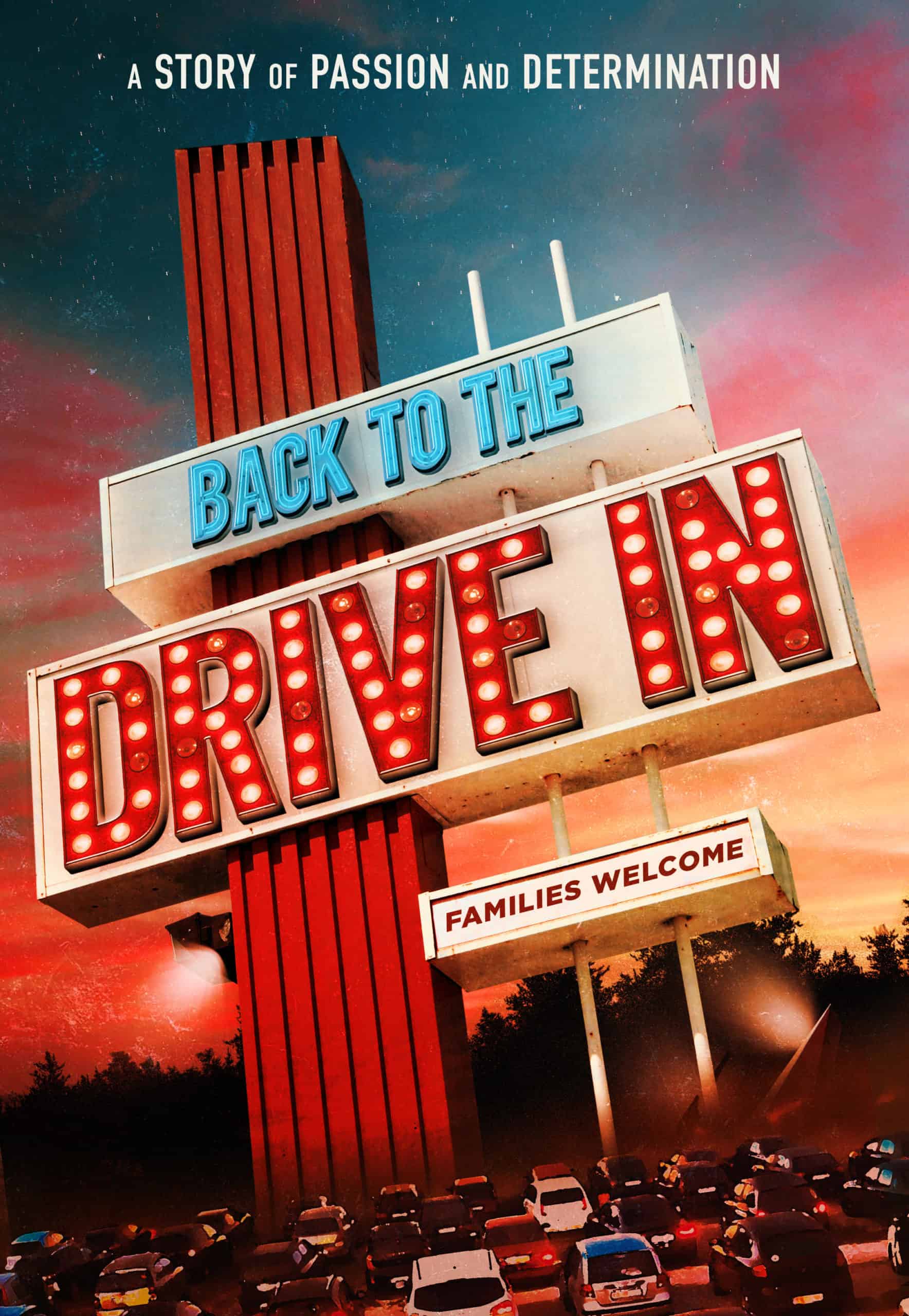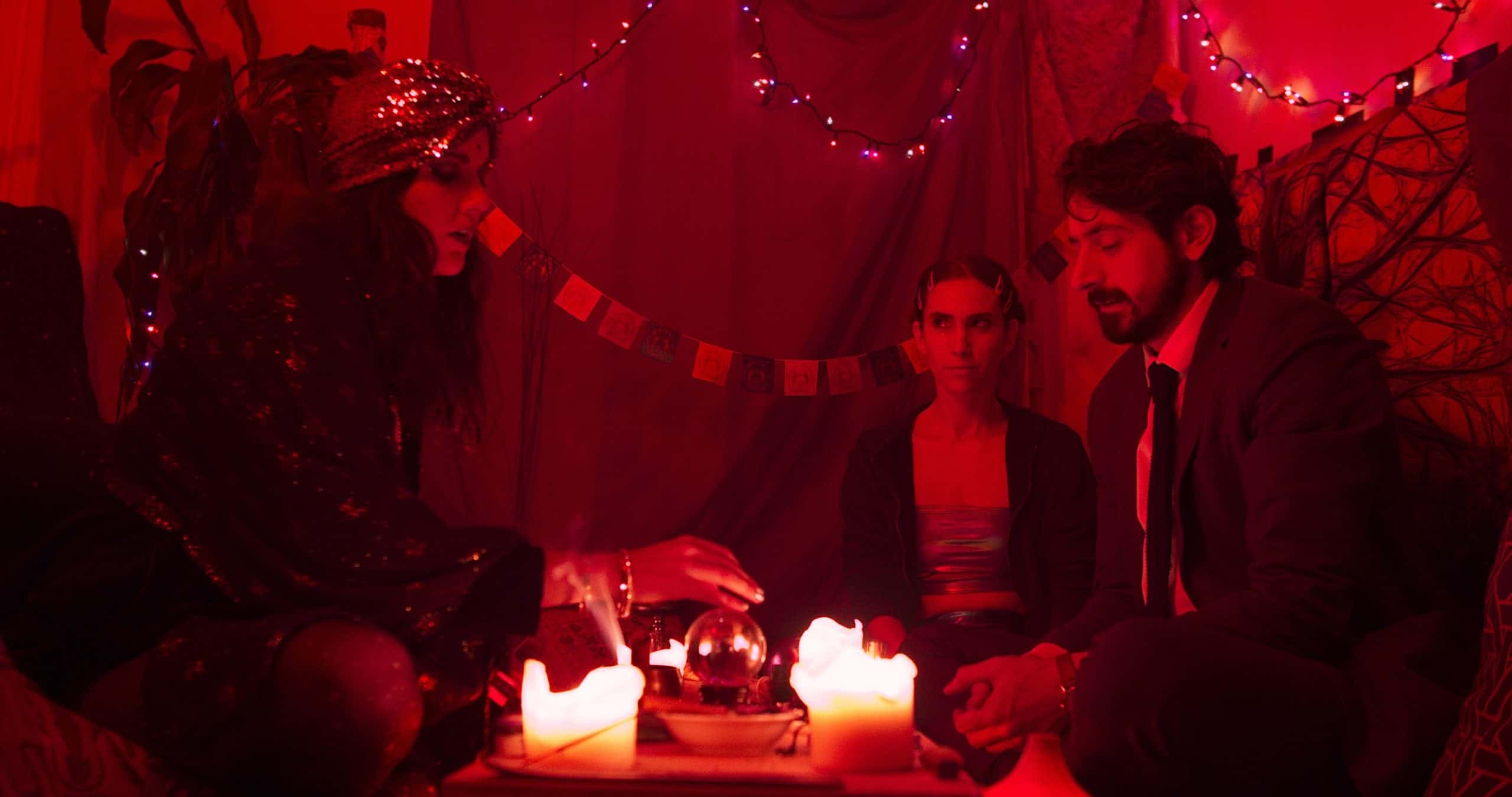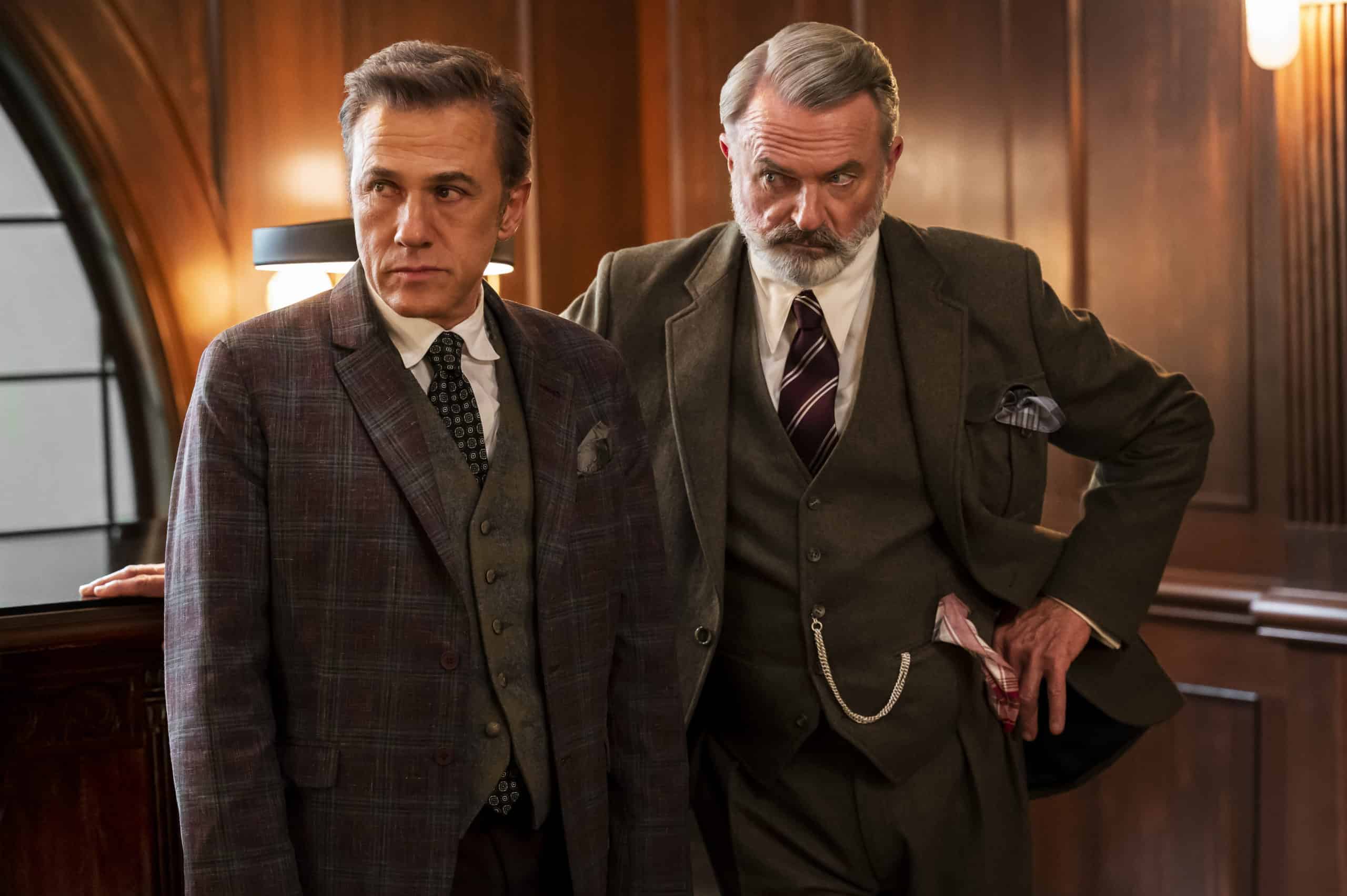Back to the Drive-In is a documentary about how the American Drive-In system struggled to survive the first full season after the initial COVID wave. It’s all the documentary that helped me realize how much of a different movie-going experience I had as a kid. Especially when compared to people of my own age group and the immediate younger groups. I was so shocked at how many Drive-Ins I had access to before I was 18 that I went into a cinema archive group to count them all. Before I turned 21, I had short drive access to at least 6 Drive-Ins. Currently, I can access two of them.
![Back to the Drive-In (2023) [review] 1 Back to the Drive-In Quasar](https://andersonvision.com/wp-content/uploads/2023/03/Quasar-Box-Office-and-Rules.jpg)
The American Drive-In Theater is a cornerstone of the cinematic experience. Created as an outdoor outing to combat the rise of television and the various mid to late 20th century entertainment tech creations, it has been battling the user experience fight for ages. As the rise of the blockbuster trained audiences to forgo mono sound, standard technicolor transfers and the simple thrills of moderate concessions, we all lost out.
![Back to the Drive-In (2023) [review] 2 Back to the Drive-In marquee](https://andersonvision.com/wp-content/uploads/2023/03/marquee-2-1620x2160.jpg)
At the start of 2023, there are 321 Drive-In Movie Theaters left in the United States.
The United Drive-in Movie Theatre Owners Association
When a cinematic touchstone becomes ubiquitous
What happens when the Drive-In dies off? Well, what happened when the inner city movie palaces became performance halls and then empty rotting architecture shells? People pass them on the street and older citizens will remember that it used to be something back in the 60s, 70s or 80s. Then they move on. You might have went as a kid and now struggle to remember how much of Kindergarten Cop you actually watched before going to sleep in the backseat of that old minivan.
![Back to the Drive-In (2023) [review] 4 Back to the Drive-In (2023) [review] 3](https://andersonvision.com/wp-content/uploads/2023/03/Mission-Tiki-California-3840x2160.jpg)
Throughout Back to the Drive-In, we see new owners and decades’ old owners fighting the same battle. How can you compete with a world that has moved on or never experienced the Drive-In at its peak? Most of the audience members are old people being interviewed about what they miss and how much keeps missing from the experience. Even the theater owners discuss the constant need to replace RCA speakers, keep up with Hollywood demands and finding a way to beat streaming.
Hell, a portion of Back to the Drive-In focuses on something like a thunderstorm can derail a week’s business. Certain modern Drive-Ins have environmental perks to work around it and new ones like the Quasar are designed to mitigate the impact. But, even in the film’s postscript we get to see Harvest Moon Drive-In get hammered by flooding. It reminds of you just how vulnerable these beloved institutions have become.
Time and convenience in the Post COVID age
Historical appreciation is why I watch documentaries like Back to the Drive-In. But, I’m also a physical media first supporter for 20+ years now. So, I’m not your typical media consumer in 2023. But, Drive-Ins hit different because their bound nature to specific areas means that anyone outside of the US won’t get to experience one. Hell, people in major US metros and off market areas might not get to experience it. Your community has to have enough people, interest and financial support to keep a theater like this afloat.
![Back to the Drive-In (2023) [review] 5 Transit Drive-In Marquee Back to the Drive-In](https://andersonvision.com/wp-content/uploads/2023/03/Transit-Drive-in-marquee-3840x2160.jpg)
Thankfully, I live in an area that won’t support Revival Theaters ala The New Bev. But, if you sell pickles and pork sandwiches at the Concession Stand, they will watch Creed III from the comfort of their Toyota Highlander. What was more amazing about watching the Drive-in owners being interviewed and my own experience with local Drive-In owners is seeing how many of them are families with small degree of outside help.
The Texas Drive-In has more teens working at it like an older model Drive-In. However, when you go to a typical Drive-In outlet, you are seeing families and friends keeping together to let communities see movies in a different kind of setting. Plus, the double feature is one of the last real cinematic deals left in a market that is going out of its way to find new ways to gouge casual viewing.
How do you assign value to an experience?
The first time I took my spouse to a Drive-In was a triple showing of Finding Nemo, Charlie’s Angels: Full Throttle and Bad Boys II. She thought the bathroom was gross, Fried Snickers were gross and had to keep cranking up the speaker as I guess she was trying to find Nemo by sound only. Still, it’s an adventure and quite the outing to branch out of your normal viewing patterns to watch a double feature.
![Back to the Drive-In (2023) [review] 7 Back to the Drive-In (2023) [review] 6](https://andersonvision.com/wp-content/uploads/2023/03/Brazos-Drive-in-Granbury-TX-3840x2160.jpg)
Since I’m such a movie nerd, watching Back to the Drive-In does two things for me. The first being I obsess over movie house and Drive-In designs. I’ve been casually stalking The Quasar Drive-In since I finished watching Back to the Drive-In. Watching how a hospital architect went out of her way to bring equal parts of Americana and peak building design into her Drive-In hit all the nerd parts of my brain just right.
Back to the Drive-In also hits another part of my brain just right. I love Mom and Pop shops. Especially when you see entrepreneurs thumbing their nose at the odds and doing something out of love. From the old hands hanging onto the business to the young families staking their claim to American cinema history, these are our regional pioneers providing the heart of what makes cinema work.
They saved movies during the Pandemic and it’s about time we honor these heroes for their efforts. Back to the Drive-In does right by them and it makes glad to have these theaters in my life.
Support the Drive-Ins featured in Back to the Drive-In
![Back to the Drive-In (2023) [review] 9 Back to the Drive-In (2023) [review] 8](https://andersonvision.com/wp-content/uploads/2023/03/Greenville-Drive-in-owner-Leigh-Van-Swall-3840x2160.jpg)
and more to be added!
Go ahead and support my local Drive-Ins
That’s right, we always like to reach and support locals contributing to the power of cinema. So, if you’re in the Louisville or KY or Indiana area…check out the following Drive-Ins.
Back to the Drive-In is on Digital Platforms and On-Demand starting March 14th!
Note from the Management: We can’t do anything about the 9 o’clock train. Some people just weren’t meant to hear Vin Diesel offer plot exposition.


